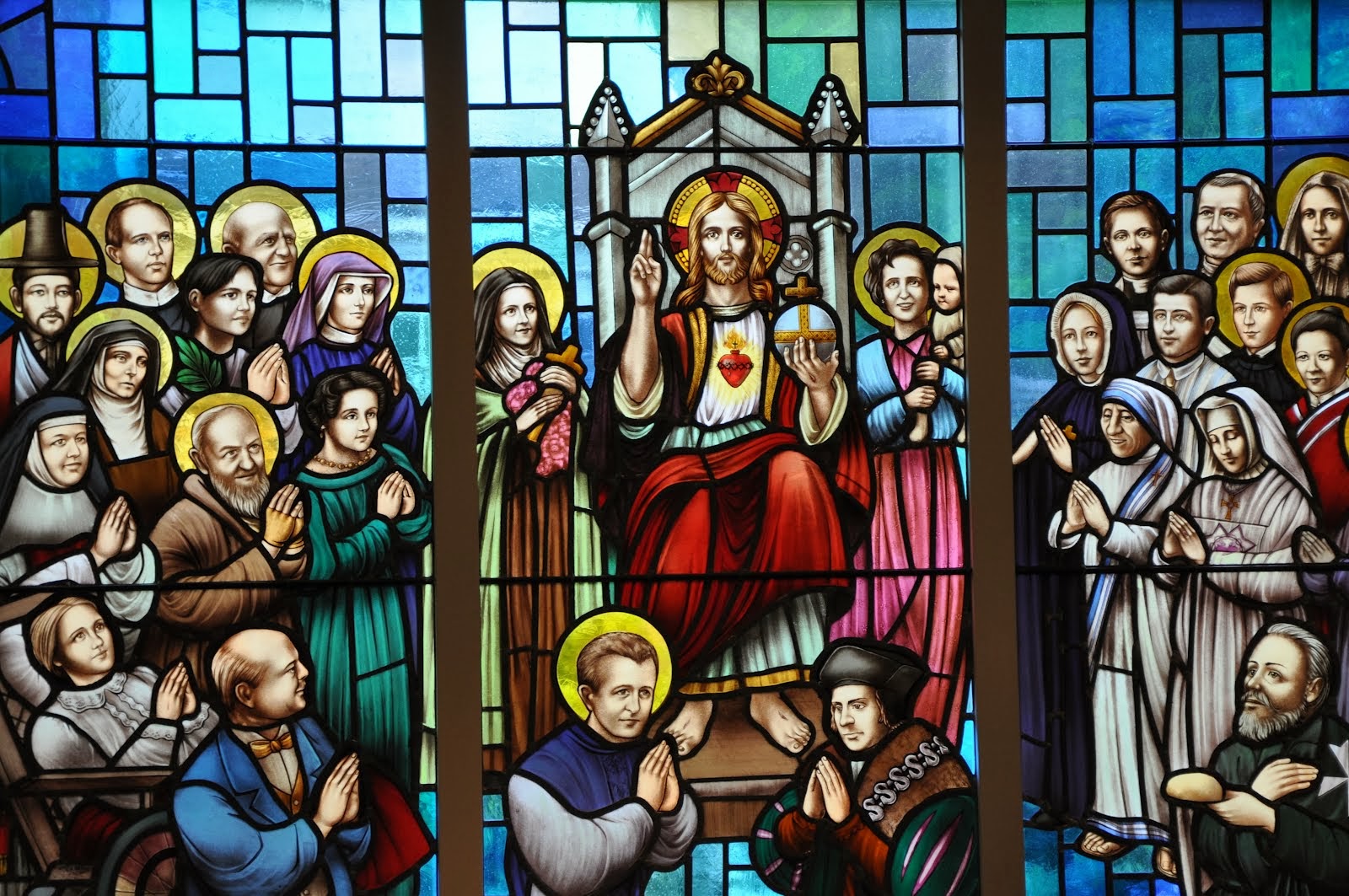
“He who has the love of Christ sometimes causes pain, even to someone he loves, for that person’s good.” St. Basil the Great (4th century, Doctor of the Church)
“Now what precisely is meant by the words, ‘My friend, how did you get in here without a wedding garment’? Listen to the Apostle: ‘If I give away all I have to the poor, if I hand over my body to be burnt, but have no love, it will avail me nothing.’ So this is what the wedding garment is. Examine yourselves to see whether you possess it. If you do, your place at the Lord’s table is secure.” St. Augustine of Hippo (4th-5th centuries, Doctor of the Church)
“Christ made love the stairway that would enable all Christians to climb to heaven. Hold fast to it, therefore, in all sincerity. Give one another practical proof of it, and by your progress in it, make your ascent together.” St. Fulgence of Ruspe (5th-6th centuries)
“Freely and generously He loved us, gratuitously and not because He had to: He loved us without being loved. For us it is impossible to love the way God does. We are always obligated in duty to love since we are constantly being given a share in God’s goodness and blessings. So we have to love with this second sort of love. But let this love be so clean and free that we love no one, nothing, spiritually or temporally, apart from God. And if you say to me, ‘How can I have this sort of love?’ I tell you…that we cannot have it or draw it from any source but the fountain of First Truth. At this fountain you will discover your soul’s dignity and beauty. You will see the Word, the slain Lamb Who gave Himself as your ransom and as your food. And He was moved only by the fire of His charity and not by any service He could have received from us, from whom He had received nothing but offense. I am saying, then, that when we gaze into this fountain thirsty and hungry for virtue, we begin at once to drink.” St. Catherine of Siena (14th century, Doctor of the Church)
“We should not worry about equality, but I do believe that the martyrdom of love cannot be relegated to second place, for ‘love is as strong as death.’ The martyrs of love suffer infinitely more in remaining in this life so as to serve God, than if they died a thousand times over in testimony to their faith, their love, and their fidelity.” St. Jane Frances de Chantal (16th-17th centuries)
“If the Church was a body composed of different members, it couldn’t lack the noblest of all; it must have a Heart, and a Heart BURNING WITH LOVE. And I realized that this love alone was the true motive force which enables the other members of the Church to act; if it ceased to function, the Apostles would forget to preach the Gospel, the Martyrs would refuse to shed their blood. LOVE, IN FACT, IS THE VOCATION WHICH INCLUDES ALL OTHERS; IT’S A UNIVERSE OF ITS OWN, COMPRISING ALL TIME AND SPACE – IT’S ETERNAL!…Beside myself with joy, I cried out: ‘Jesus, my love! I’ve found my vocation, and my vocation is love.’ I had discovered where it is that I belong in the Church, the niche God has appointed for me. To be nothing else but love, deep down in the heart of Mother Church; that’s to be everything at once…” St. Therese of Lisieux (19th century, Doctor of the Church)
“Genuine love rises above creatures and soars up to God. In Him, by Him, and through Him it loves all men, both good and wicked, friends and enemies. To all it stretches out a hand filled with love; it prays for all, suffers for all, wishes what is best for all, desires happiness for all, because that is what God wants.” St. Maximilian Kolbe (19th-20th centuries0
“Charity is the queen of virtues. As pearls are held together by a string, so are the virtues held by charity. And just as the pearls fall if the string breaks, so are the virtues lost if charity fails.” St. Pio of Pietrelcina (19th-20th centuries)
“The way of love has a name. It is sacrifice.” St. Josemaria Escriva (19th-20th centuries)
“The Cross has asked the question Why does God permit evil and sin to nail Justice to the tree? The Resurrection answers; that sin having done its worst exhausts itself. Sin is thus overcome by Love, which is stronger even than sin or death.” Ven. Fulton Sheen (19th-20th centuries)
“Man cannot live without love. He remains a being that is incomprehensible for himself, his life is senseless; if love is not revealed to him, if he does not encounter love, if he does not experience it and make it his own, if he does not participate intimately in it…suffering is present in the world in order to release love, in order to give birth to works of love towards neighbor, in order to transform the whole of human civilization into a ‘civilization of love’.” Pope St. John Paul II (20th-21st centuries)
